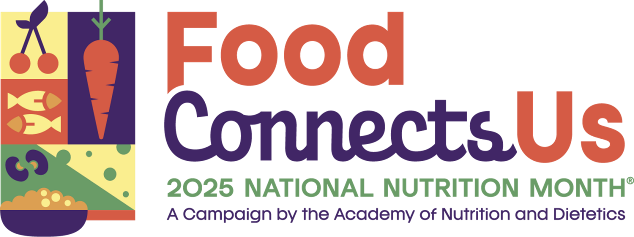National Nutrition Month and Sustainable Eating in the Hudson Valley: A Guide to Local, Organic, and Healthy Living
March is National Nutrition Month, a time to focus on the choices we make about food and how they impact our health and the environment. For those living in or visiting the Hudson Valley, this region offers a wealth of opportunities to embrace sustainable and organic eating while supporting local farmers. By prioritizing fresh, locally grown produce and responsibly sourced foods, we can enjoy better nutrition, reduce our carbon footprint, and foster a healthier community.
The Importance of Local Farming in the Hudson Valley
The Hudson Valley is a leader in sustainable agriculture, with a rich history of farming that continues to thrive today. Supporting local farms means:
Freshness and Flavor: Locally grown food is harvested at peak ripeness, meaning it's more flavorful and nutrient-dense than produce transported from across the country.
Environmental Benefits: Small, sustainable farms use eco-friendly practices, reducing pollution, conserving water, and promoting biodiversity.
Economic Growth: Shopping at farmers’ markets and supporting community-supported agriculture (CSA) programs keeps money circulating in the local economy and helps small farmers thrive.
When you buy from a Hudson Valley farm, you’re not just purchasing food. You’re investing in a system that values the land, the farmers, and the community.
The Health Benefits of Eating Sustainable and Organic Foods
A diet rich in organic and sustainably sourced foods offers numerous health benefits, including:
Higher Nutritional Value: Studies suggest that organic fruits and vegetables often have higher levels of antioxidants, vitamins, and minerals.
Fewer Pesticides and Chemicals: Organic foods are grown without synthetic pesticides and herbicides, reducing your exposure to harmful chemicals.
Better Gut Health: Many small, sustainable farms prioritize soil health, which translates to nutrient-rich foods that benefit digestion and immune function.
Reduced Risk of Chronic Disease: A diet based on whole, unprocessed foods helps lower the risk of obesity, diabetes, and heart disease.
The Negative Impact of Mass Food Production
While mass food production provides accessibility and convenience, it comes at a cost:
Loss of Nutritional Value: Large-scale farming prioritizes yield over nutrient density, often leading to depleted soils and lower-quality produce.
Excessive Use of Chemicals: Many conventional farms use pesticides and fertilizers that can harm human health and contaminate water supplies.
Environmental Damage: Industrial agriculture contributes to deforestation, soil erosion, and greenhouse gas emissions.
Animal Welfare Issues: Factory farms often prioritize efficiency over ethical treatment, leading to poor living conditions for livestock and increased use of antibiotics.
Shopping Local: Where to Find Sustainable Foods in the Hudson Valley
Fortunately, the Hudson Valley is home to a variety of places where you can find fresh, organic, and sustainably sourced foods:
Farmers’ Markets – Visit the Kingston, Rhinebeck, Newburgh, Beacon, or Cold Spring Farmers’ Markets for a wide selection of fresh produce, meats, dairy, and artisanal products.
CSA Programs – Join a Community Supported Agriculture (CSA) program like Fishkill Farms or Roxbury Farm for weekly shares of local, seasonal produce.
Organic Grocery Stores – Shops like Mother Earth’s Storehouse (Kingston, Saugerties, Poughkeepsie) specialize in organic and natural foods.
Local Butchers and Fisheries – Find sustainably raised meats at places like Northaven Pastures and Applestone Solutions or fresh, ethically sourced seafood at Gadaleto’s Seafood Market.
Farm-to-Table Restaurants – Enjoy meals made with local ingredients at spots like Aroma Thyme in Ellenville or Blue Hill at Stone Barns in Tarrytown.
U-Pick Farms – Seasonal picking at places like Wright’s Farm (apple picking) or Greig Farm (berries and veggies) allows you to harvest fresh food directly from the source.
Maintaining a Healthy Diet with Hudson Valley’s Bounty
A healthy diet isn’t just about eating organic—it’s about balance and making mindful choices. Here are some simple ways to improve your nutrition:
Eat the Rainbow: Incorporate a variety of colorful fruits and vegetables to ensure a broad range of vitamins and minerals.
Prioritize Whole Foods: Opt for unprocessed, whole foods like leafy greens, whole grains, and lean proteins.
Stay Hydrated: Choose local spring water or herbal teas made from Hudson Valley-grown ingredients.
Plan Seasonal Meals: Cook with what’s in season to maximize freshness and nutritional benefits.
Limit Processed Foods: Cut down on packaged snacks and ready-made meals that often contain unhealthy additives.
10 Ways the Hudson Valley Promotes Nutritional Awareness and Well-Being
Hudson Valley Seed Library: Encourages home gardening by offering heirloom and organic seeds, allowing residents to grow their own food.
The Culinary Institute of America (CIA): Offers farm-to-table cooking classes, helping people learn how to prepare nutritious meals using local ingredients.
Scenic Walking Trails and Parks: Places like Minnewaska State Park encourage physical activity, complementing a healthy diet.
Local Honey and Maple Syrup Farms: Natural sweeteners like Hudson Valley honey and maple syrup offer healthier alternatives to processed sugar.
Farm-to-School Programs: Initiatives bring fresh, local produce into school cafeterias to improve children’s nutrition.
Wellness Retreats and Yoga Studios: Retreats at places like Omega Institute in Rhinebeck integrate nutrition education with holistic wellness.
Sustainable Vineyards and Cideries: Organic wines and ciders from places like Millbrook Vineyards offer cleaner beverage options.
Community Gardens: Spaces in Kingston and New Paltz provide locals with the opportunity to grow their own fruits and vegetables.
Food Co-Ops: Places like Honest Weight Food Co-Op promote access to organic, sustainable products while supporting ethical farming practices.
Local Nutritionists and Holistic Practitioners: Many Hudson Valley health professionals specialize in personalized nutrition plans based on whole, local foods.
Conclusion
This National Nutrition Month, take advantage of all that the Hudson Valley has to offer. By supporting local farmers, choosing organic and sustainable foods, and making mindful eating choices, you can improve your health while helping to build a more resilient food system. Whether it’s visiting a farmers’ market, cooking with fresh ingredients, or simply learning more about where your food comes from, every small change makes a difference.
So, celebrate the flavors of the Hudson Valley and take a step toward better nutrition, one local bite at a time!




